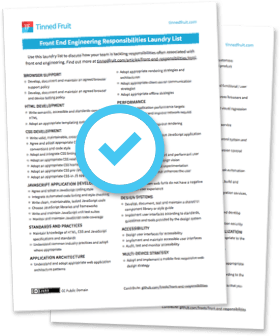You really do have to get out of the building
Steve Blank in The Four Steps to the Epiphany (a grand-sounding book that launched the Lean Startup movement) urged entrepreneurs to get out of the building.
He means this: in order to create a successful business and product, you need to understand your target audience. And that means getting off your ass, getting out of the building, and speaking to them. A lot.
To some extent, this mantra has been a constant throughout my professional life. I’ve heard it, and variations of it, from different angles at every step of the way. The lean startup movement were certainly not the first people to think that speaking directly to customers might be a good idea.
As a psychology student I heard about the importance of qualitative and quantitative user research as part of a human factors lecture course on preventable air accidents.
I lived it myself as a Human Factors Intern at a well-known tech company. This was in the 1990s. These days, the title would be UX Researcher. My job was to facilitate user research studies, and so I saw the impact of user research on a product first hand.
I’ve continued to see the impact that customer research of various kinds has had throughout my development career as I have worked with UX professionals, data-driven marketing experts and even ethnographers.
There are hundreds of different ways of getting out of the building.
But for some reason there is still a deep, ingrained resistance to it in software development.
I enjoy meeting people and talking to them in one-to-one situations or small groups. But, as a fairly strong introvert, I also resist it with every ounce of my being. And yet I almost always feel a renewed sense of purpose and drive when meeting real customers or seeing them use a product.
This tension and resistance to speaking to your actual audience and users is widespread and pervasive, and not just in software engineering. I do some mentoring work for small startups in the UK, and I’m regularly taken aback by new and creative ways that founders avoid speaking to customers, usually to the great detriment of their own business.
We tend to assume that software developers are the worst offenders here. But the pattern is just as likely even for people with sales and marketing backgrounds.
As a developer, it can be all too easy to stay in the shadows and play a behind-the-scenes role in the product development process. It just isn’t an explicit part of the job. But UX, sales, marketing and product people are expected to talk to users. It’s part of the job description.
But if you don’t talk to users yourself, or sit in on usability sessions, or find some way to connect directly with your audience, you lose much of the right to get involved in the process of translating users wants and needs into product features. You’re trusting others to fully capture, consolidate and categorise user research data, and translate and enshrine those insights in the product.
This is problematic for a lead front-end developer, because it immediately puts you on the back foot in product discussions. You’re denying yourself the appropriate level of insight to make good decisions in your role. It is your duty to understand the audience and users well.
Sure, reports and summaries of research are useful and important. But they are second-hand data, filtered through the lens of your colleagues. Meeting real customers brings it all home strongly, and sends the message to your colleagues that you are serious about taking a user-focused approach to your technical work.
Find ways of taking part in the user research your company does, whether it is market research, UX research or something else. Encourage other developers to do the same.
Even better, be an advocate for the value of research yourself. When you spot a discussion that is based on assumptions about customers, there is an opportunity there to raise the need for research. You need high quality insight and data to do your job well, so make sure that your organisation knows that.
I’d love to know more about how user research impacts your front-end technical decision-making, so hit reply and tell me:
Have you ever taken part in or watched user research sessions yourself? What did you learn about your users and your role as a result?
All the best,
– Jim
